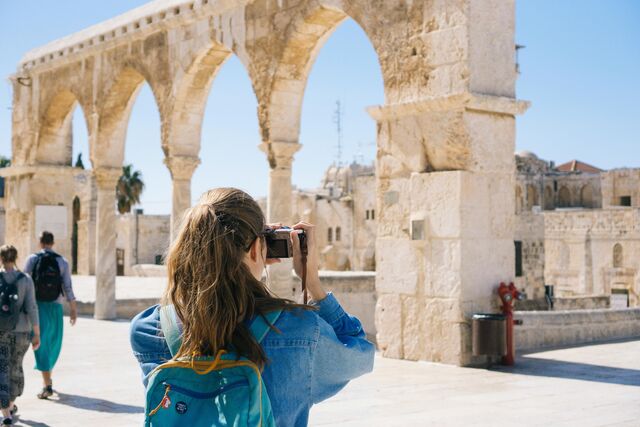How to be culturally aware when travelling
Travelling to a new destination isn’t just about seeing new sights, it’s about connecting with people and experiencing their way of life. Every culture has its own customs, gestures, and etiquette that shape how people interact.
What’s polite in one country might be offensive in another. Understanding these differences helps you avoid awkward moments and build genuine connections wherever you go.
Cultural awareness is more than just good manners; it’s a form of respect that enriches your journey and leaves a positive impression on those you meet.

Respecting local customs: what you need to know
Cultural sensitivity starts long before you pack your bags. Here are some key points to keep in mind before and during your trip.
Top tips for being culturally aware
1. Research before you go
Spend some time learning about your destination’s customs, traditions, and etiquette. Check travel guides, embassy websites, or cultural blogs.
For example, Singapore has strict laws like its ban on chewing gum, breaking them can lead to fines. Knowing these details in advance helps you avoid surprises.
2. Dress appropriately
Many cultures have clear expectations for clothing, especially around religious or sacred sites.
In the Middle East, women are expected to cover shoulders and knees. In Buddhist temples, both men and women should wear modest clothing. Carrying a light scarf or shawl is always a good idea for unexpected visits to sacred places.
3. Learn basic local phrases
A simple “hello” or “thank you” in the local language goes a long way.
In France, for instance, it’s polite to greet shopkeepers with “Bonjour” before making a request. Even if your pronunciation isn’t perfect, locals usually appreciate the effort.
Try using language apps like Duolingo, Memrise, or Google Translate to pick up a few key phrases before you arrive.
4. Follow local behavioural norms
Observe how locals act in public.
In Japan, public transport is quiet, loud conversations are considered rude. In parts of Asia and the Middle East, removing your shoes before entering a home is customary. Small gestures like these show cultural awareness and respect.
5. Adapt to local tipping customs
Tipping expectations vary worldwide. In Japan, tipping is uncommon and may even be seen as offensive, whereas in the United States, service workers often rely on tips as part of their income. Research local customs to avoid awkward situations.
6. Avoid public displays of affection
Holding hands or kissing in public might seem harmless, but in some countries, it’s frowned upon or even illegal.
In the United Arab Emirates, for example, public affection can lead to fines or arrest. When unsure, follow local behaviour, it’s always the safest approach.
7. Use hand gestures carefully
Not all gestures mean the same thing everywhere.
The thumbs-up sign is positive in most Western countries but considered rude in parts of the Middle East.
Similarly, the “OK” hand sign is seen as offensive in Brazil and Turkey. When in doubt, keep gestures neutral and friendly.
8. Keep your voice low in public
Speaking loudly might be normal in some places, but it can be seen as aggressive or disrespectful elsewhere.
In Nordic countries, people value calm, quiet speech. Keeping your voice down, especially in restaurants or on public transport, shows awareness and respect.
9. Respect queuing customs
Queuing habits vary across the world.
In the UK and Japan, forming an orderly line is essential. Cutting in front is a big no-no.
In parts of Southern Europe or Latin America, queuing might be more relaxed, just observe and follow the local flow.
10. Ask before taking photos
Always ask for permission before photographing people, especially in traditional or rural areas.
Some religious sites, government buildings, or indigenous communities have strict no-photo rules. When unsure, ask politely first, it’s the respectful thing to do.
FAQ
Q1: Why is cultural awareness important when travelling?
It helps you show respect, avoid misunderstandings, and create genuine connections with locals.
Q2: How can I prepare before visiting a new country?
Research basic customs, learn key phrases, and check dress codes for religious or cultural sites.
Q3: Is it okay to use gestures when talking abroad?
Yes, but use them carefully. Some gestures can mean very different things in other cultures.
Q4: Do locals expect tourists to follow their customs?
Generally, yes, following local etiquette shows you value and respect their way of life.
Conclusion
Being culturally aware transforms travel from simply visiting a place to truly experiencing it. A respectful traveller is not just welcomed; they are remembered fondly.
By learning, observing, and adapting, you can connect meaningfully with the people you meet and enjoy authentic, positive experiences wherever you go.
When in doubt, watch how locals act and follow their lead. Respect, after all, is a universal language.